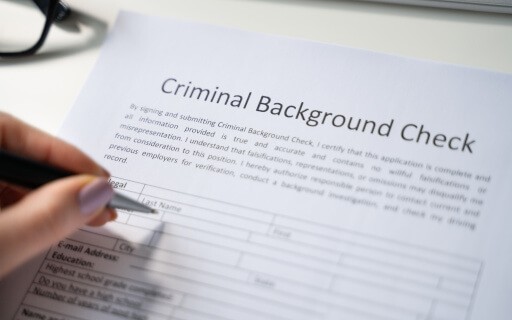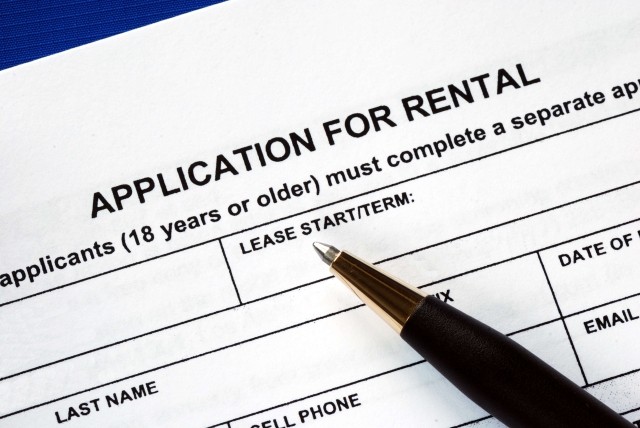
No landlord wants to deal with evictions, which is why screening your tenants before leasing is an important step. Part of the screening process is searching for eviction records, which can inform your decision-making process. If a potential tenant was evicted once for certain behavior, they might do it again. As a landlord, you want your rental to be occupied by trustworthy and reliable residents, so an eviction record search is vital as part of tenant screening.
- Why search for an eviction record?
- Where to find tenant eviction records
- Adhering to laws in tenant screening
- Understanding eviction records
- Use tenant references to check for evictions
- How tenants can check if they have an eviction
Why Search for an Eviction Record?
Eviction records can tell you if an applicant has a history of evictions which can be a red flag. If tenants have had problematic behaviors, they are likely to repeat those issues. No landlord likes evicting tenants as it is time-consuming and expensive. Serious property damage, not paying rent, or illegal behavior at the property are just a few reasons for an eviction. If you decide to evict, the process can take weeks or even months. If a prospective tenant has a history of evictions and you can uncover the reasons behind them, this may be a reason to decline their application.
Eviction records are crucial because they provide insights that can mitigate financial risks and safeguard your rental property investments. If you have non-paying tenants, the financial implications are immediate and severe — lost revenue from unpaid rent can quickly accumulate, impacting your ability to maintain the property and meet your financial obligations. Beyond the cost of lost rent, irresponsible tenants may cause significant property damage that extends far beyond normal wear and tear, leading to hefty repair bills eroding profitability. Furthermore, problematic tenants can be the source of disruptions, affecting the harmony within the property community and potentially leading to legal issues that demand time, money, and resources to resolve. Therefore, by diligently reviewing eviction records, you can identify early warning signs, helping you avoid the challenges of renting to unreliable tenants.
Where to Find Tenant Eviction Records
There are a couple of ways to find eviction records; you can go through a screening service or search for them on your own. Each method has its pros and cons; weigh them carefully to decide the best method for you to use.
Look up evictions on your own
When looking up tenant eviction records on your own, you can check your state or county court records. If you’re unsure of which sites to search, the National Center for State Courts has an easy-to-use system that will direct you to the right site.
Once you’ve found the right court site, search the name of the potential tenant. Not all states will give you full access to the case, but most states will provide a short brief to give you a better idea of the case. Read all the provided information and remember that the presence of an eviction case doesn’t necessarily mean you’re dealing with a bad tenant. Wrongful evictions do happen, so read the case in full to get a better understanding of the situation.
Use Apartments.com to search for evictions
You can do an eviction search yourself, but it can take time, be difficult to understand, and you might miss something. If you manage your rental through Apartments.com, our tenant screening services will provide you with eviction reports, background checks, and credit reports. Another feature you’ll find only on Apartments.com is support for co-signers, guarantors, and co-applicants. If you need more information to decide, you can request supporting documents from potential tenants directly on our platform. Get all the information you need to find the right tenant quickly and easily when you screen with Apartments.com.
Adhering to Laws in Tenant Screening
Fair Housing Laws
When conducting tenant screenings and reviewing eviction records, you must be mindful of Fair Housing Laws. These laws are designed to prevent discrimination based on race, color, national origin, religion, sex, familial status, or disability. Eviction records can be a valuable tool in the decision-making process, but any tenant screening practices must comply with these regulations to ensure fairness and equality. Because navigating these legal waters can be complex and the laws may vary by state and local jurisdiction, consulting with an attorney specializing in real estate or landlord-tenant law is strongly advised. Legal professionals can provide specific guidance and ensure that your screening processes align with both state and federal regulations, protecting you from potential legal complications.
Tenant screening laws and the Fair Credit Reporting Act
Depending on the location, different cities and states have tenant screening laws that you must adhere to. Be sure to do your research regarding these to avoid any complications or issues. Landlords must also act in accordance with the Fair Credit Reporting Act (FCRA). This act outlines procedures regarding obtaining and using consumer reports by landlords which include credit reports, rental history, and criminal history. The guidelines on proper notice needed when a landlord takes an adverse action are part of the FCRA. You can only get a consumer report if you have a “permissible purpose” which includes renters applying for or renewing a lease.
When it comes to adverse actions, the FTC defines them as “any action by a landlord that is unfavorable to the interests of a rental applicant or tenant.” This can include denying an application, requiring a co-signer, and other situations. If you do an adverse action based on any part of the information in a consumer report, the FCRA requires you to give notice of the action to the consumer. So, if you denied a renter’s application because of multiple evictions learned about from the eviction report, you would have to send an adverse action notice.
Understanding Eviction Records
Tenant eviction records are crucial documents that contain information about the eviction process:
- Record type
- Record number
- Court name
- Filing address
- Defendant
- Filing type
- Plaintiff
- Dismissal type
- Judgement
- Record ID
- Date filed
This information helps you gain a clearer picture of what happened. Filing dates provide a timeline of events that tells you how drawn out or quick the process was. The identification of involved parties on the report verifies that your tenant was involved so there are no misunderstandings. The outcome, whether it was in favor of the landlord or the tenant, can indicate how the eviction was resolved. While eviction reports can tell you a lot about a tenant, it doesn’t always give the full story.
Interpreting eviction records requires caution and an understanding that these documents may not paint the entire picture. For instance, an eviction might have been initiated due to circumstances beyond the tenant's control, such as sudden financial hardship or medical emergencies. It is also possible for a record to reflect disputes that were resolved amicably, evictions that were filed but later withdrawn, or evictions that were filed but the tenant was not forced to vacate the property. These records are invaluable tools in your tenant screening process, but they should be considered alongside a broader assessment of the tenant's history and the specific context of the eviction. Talking directly with potential tenants about their past when eviction records are found can clarify situations and reveal responsible tenants who faced temporary challenges.
Use Tenant References to Check for Evictions
Asking potential tenants for landlord references can give you additional information that can be useful. Previous landlords can tell you about an applicant’s behaviors and give an insight into them. This can turn up rent issues, problematic behaviors, and other actions that wouldn’t appear on a background check. References can also help you discover if a tenant was involved in a potential eviction situation or a situation that was resolved outside of court. For example, the cash for keys method might not appear on a record. This is a scenario in which the tenant isn’t formally evicted, but the landlord gives a cash incentive to the tenant to leave the property.
How Tenants Can Check If They Have an Eviction
Apartment hunting can be just as stressful as managing a rental property. If your tenants are concerned with what their rental record looks like, they can use the same steps above to see how they appear on paper to a landlord.
The tenant can check state and county court systems for any cases appearing on the public record. Evictions can stay on their record for up to seven years; if the issue in question was long ago, they may be in the clear. Renters can search themselves in tenant screening programs to see how they’re viewed by potential landlords. This will also provide them with their credit score and a background check so they can sort out any issues on that front as well.
It’s important for tenants to note that if they were brought to court for an eviction case and lost, there’s no way to have it removed from their record (if it’s been in the last seven years). However, if the tenant won the case, or it was settled and never brought to court, there are ways to have that information expunged from the record, which could improve their chances of getting a rental. It’s possible to rent an apartment or house with an eviction on your record. It all depends on the circumstances of the eviction, so it’s important for tenants to make sure potential landlords get the full story.
FAQ
How do you conduct a background check on a tenant?
You can run a background check as part of the tenant screening process on Apartments.com. You can get all the information you need on potential applicants in one place. Screening reports are created in partnership with TransUnion and include credit, criminal, and eviction reports to give you a complete picture of your applicant.
How long does an eviction stay on record?
Evictions can stay on record for up to seven years. Bear in mind that it is possible to get evictions removed from tenant screening reports and public records.
This article was originally published on December 7, 2020.











